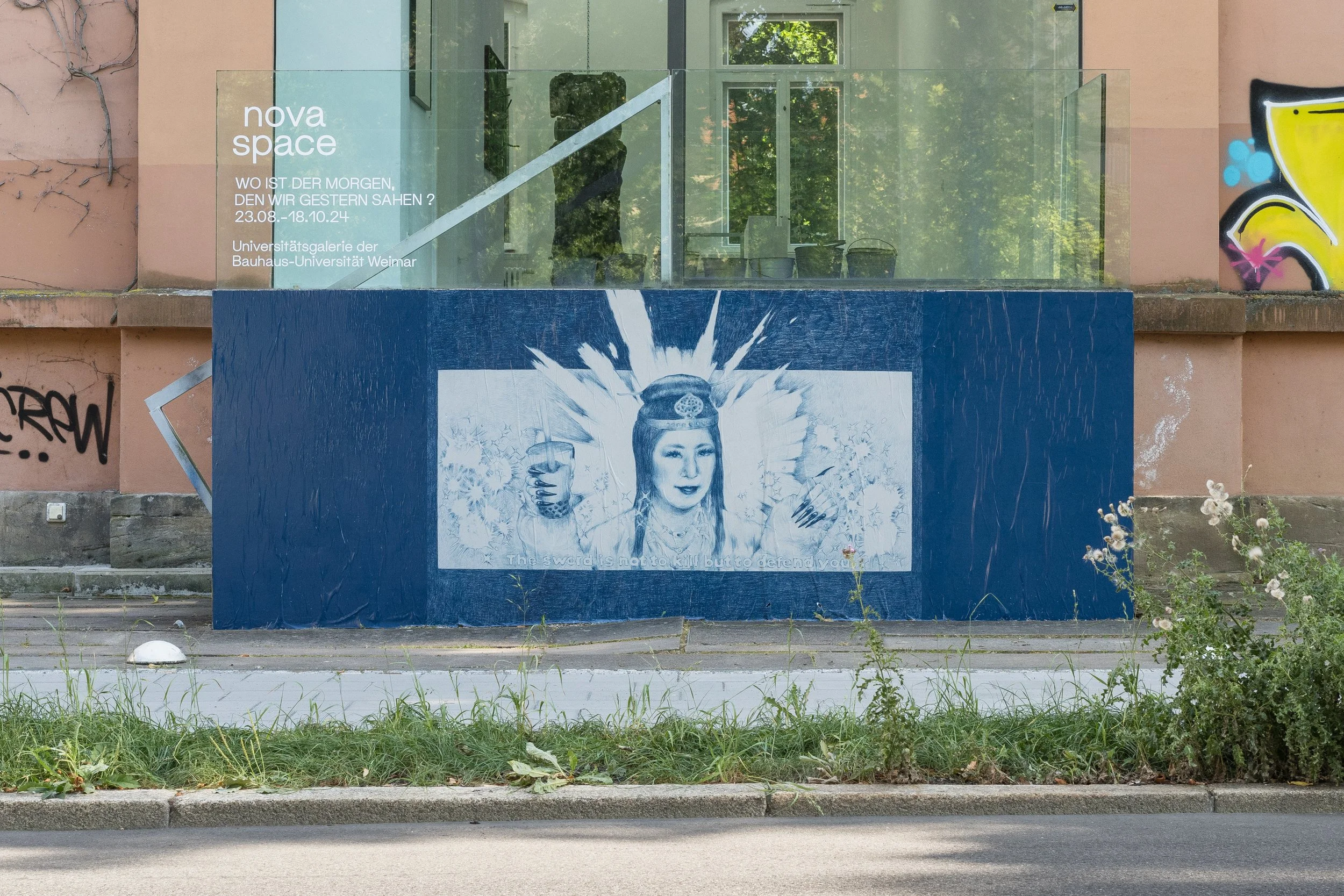The Sword (2024)
Acrylic coloured pencil on paper, 140 x 400 cm
In her drawings and paintings, Rio Usui investigates scientific and imaginative phenomena, among which she searches for connecting elements between fiction and reality. She explores how the human subconscious reacts to transformed everyday objects. She is particularly fascinated by how science fiction and cinematic representations of the post-war period, despite their fictional nature, are shaped in relation to historical facts and contemporary values, and continuously evolve in parallel with commonplace concepts and metaphors.
In addition to references to the manifold remakes of Godzilla (1954)- a film creature that can be read as a metaphor for Japan‘s nuclear disasters - she creates new characters that serve as tools and vessels for projection in coping with our own crises and challenges.
For the exhibition, Usui produced The Sword (2024), a large-format poster adorning the staircase. In the detailed drawing, she uses traditional, graphic designs from film posters, reinterpreting and combining them with contemporary elements. The drawing is based on a film still from The Three Treasures (1959), which deals with the Shinto interpretation of the creation story. In this scene, the heroic protagonistYamatotakeru tries to defeat an evil snake with a sword. His mother cautions him the sword is not meant to kill, but to protect. According to legend, this sword is one of three sacred weapons of the Japanese imperial family and is therefore still part of Japan‘s nationalist narrative today. In parallel it lends itself to novel interpretation as a democratic tool that protects rather than destroys. By collaging attributes such as fake nails, eyelashes and bubble tea, Usui transforms the mother into a figure of the present and thus questions the emancipatory potential of pop and internet culture in contrast to Shintoism and conservative belief systems.
Text by Sophia Scherer
Exhibtion view from Wo ist der Morgen, den wir gestern sahen? 23. August – 25. October 2024 at nova space, Bauhaus-University Weimar. Curated by Sophia Scherer
Photos by Jannis Uffrecht


